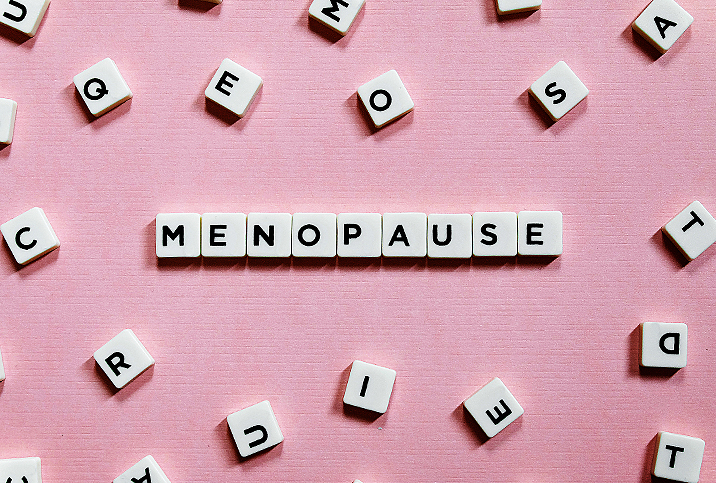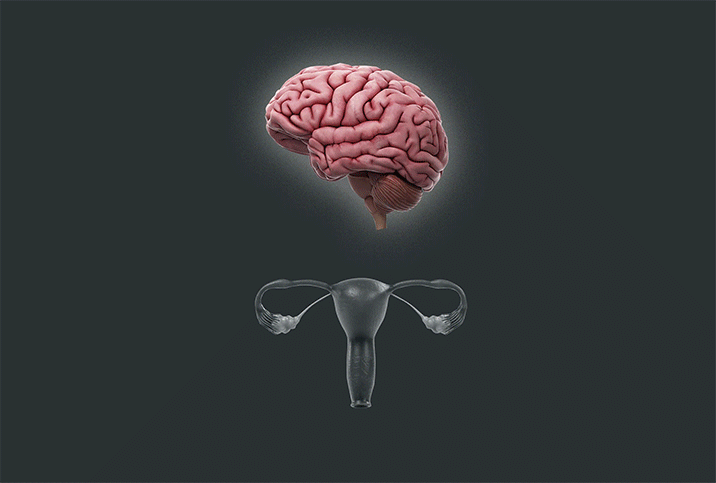Menopause: Beyond Hot Flashes and Brain Fog

For a female, it’s always something. First, it’s starting your period. Then it’s managing your periods, juggling birth control, and potentially trying to get pregnant. After you have babies, you may have a few good years before you slide into menopause, where you are greeted by hot flashes, painful vaginal dryness and brain fog. So you have that going for you.
Welcome to your menopause
Menopause is a natural state brought on by hormonal changes that occur in a woman’s midlife. The ovaries stop producing hormones such as progesterone and estrogen, and monthly periods cease. This process usually begins around age 51 on average, according to the Mayo Clinic, but it can happen as early as 45 or even much later. A lot depends on the individual.
Perimenopause, the time when menopausal symptoms first begin, occurs about four years before a woman’s final period. Women in perimenopause may have longer or shorter menstrual cycles, or even skip a month on occasion. Women who have ceased menstruating for a period of one year are considered to be in menopause, which brings an end to a woman’s ability to conceive children.
Not always an age thing
For medical reasons, some women undergo “chemical menopause,” which involves taking medication to suppress the hormones that cause a period. Such medications—GnRH agonists used for endometriosis do this—are usually recommended only for short-term use for a specific medical purpose, so women will experience only short-term menopause symptoms as a result.
Regardless of their age, women who have their ovaries surgically removed will undergo menopause, since the ovaries produce the hormones that are needed for women to continue menstruating. Cancer treatments such as chemotherapy can also cause a temporary menopause with short-term symptoms (though some women experience permanent menopause as a result). Radiation, another cancer treatment, can impact the functioning of the ovaries if the radiation directly targets the organs. This will also impact hormone production and can cause menopause symptoms.
Beyond hot flashes
Menopause and perimenopause can stop or reduce a woman’s production of key hormones, and this can cause a variety of symptoms, including a noted difficulty in focusing (brain fog), mood swings, hot flashes (by day) and night sweats, insomnia, weight gain, waning sexual desire and painful vaginal dryness. Other symptoms include dry skin, brittle nails and depression.
Women going through menopause may also experience a change in their periods, before they stop altogether, including fluctuations in duration, flow and overall cycle length. Some women report having more pain with cramping, while others report more bleeding than is typical. Tracking these period variations is key to getting help with managing the symptoms.
Other concerns
The lack of certain hormones in the body can place women at risk for developing other preventable health conditions, such as osteoporosis, a weakening of bones that can lead to fractures. Thankfully, this condition and others can be prevented and monitored through screenings such as regular bone-density scans and bloodwork. These regular health checks can help with the early detection of such health concerns related to menopause.
To assist your physician in treating your menopausal symptoms, start writing down the date and time you experience each symptom. Present this log, or “symptom tracker,” when you see your doctor, so you can have a discussion about what steps to take to improve your overall wellness.


















